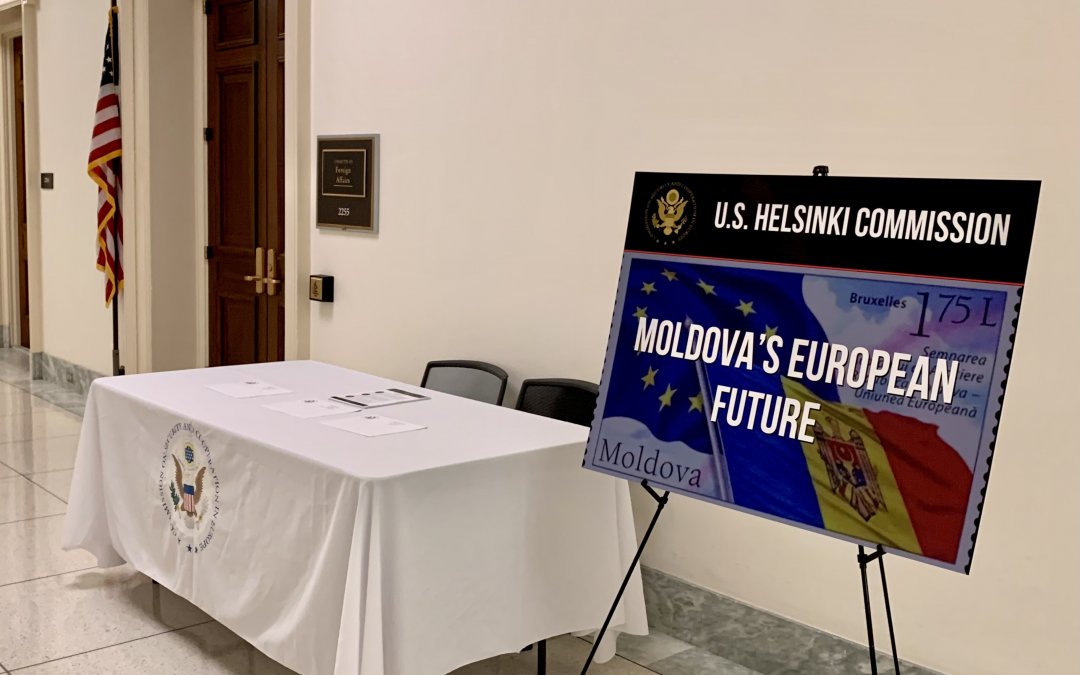WASHINGTON — Moldova’s pro-EU President Maia Sandu secured a second term in a pivotal runoff on Nov. 4, defeating Alexandr Stoianoglo, a rival backed by the traditionally pro-Russian Socialist Party. Two weeks earlier, Moldovans narrowly voted in a national referendum to enshrine the country’s pursuit of EU membership into the country’s constitution.
Both votes were overshadowed by claims of what the country’s foreign ministry called “illegal and deliberate interference” as it handed its formal note of protest to the Russian ambassador to Moldova on Tuesday.
According to Stephen Nix—a senior director for Eurasia at the International Republican Institute, an organization that sent an election observation mission to Moldova—Russia’s influence campaign included cyber attacks and an arson attempt at Moldova’s Central Election Commission. There were also accusations of AI-generated robocall death threats, bomb threats at international polling locations and a vote-buying network that allegedly made payments to up to 130,000 Moldovan citizens to sway their vote.
“The 2024 electoral period saw unprecedented levels of brazen Russian interference,” Nix said, speaking at the U.S. Helsinki Commission meeting in Washington on Tuesday.
Moscow denied the meddling allegations, although it maintained the vote was “neither democratic nor fair” and refuses to recognize Sandu as the legitimate president.
The pro-Western election and referendum results, which came despite the alleged meddling attempts, mark a move away from over a century of Russian influence, underscoring a shift toward the West amid a rise of tension in the region.
However, experts warn the development could be reversed soon.
“They refuse to recognize the outcome of the Sandu election; they will not accept the referendum vote either,” Stephen Blank, a senior fellow at the Foreign Policy Research Institute, said at the meeting. “So, therefore, they are going to keep trying.”
In particular, experts say Russia’s meddling attempts might intensify even further ahead of Moldova’s looming parliamentary election in 2025.
“The escalation of Russian interference tactics during the presidential election demonstrates the piloting of new Russian techniques, which are expected to further escalate during the upcoming parliamentary election,” Nix said.
The parliamentary vote could prove pivotal for Moldova’s political trajectory. The country, located between war-torn Ukraine and EU-member Romania, appears to have become another battleground in Russia’s ongoing campaign against Western influence in the post-Soviet region. Chisinau has been under heightened pressure ever since Russia launched its full-scale invasion of Ukraine in February 2022, with Moscow resorting to measures like energy blackmail to keep Moldova close.
“The parliamentary elections will elect a legislature which will be instrumental in the activities preparing Moldova for…European Union accession,” senior adviser for Russia and Europe at the United States Institute of Peace Donald Jensen said at the Tuesday U.S. Helsinki Commission meeting. “If a Russian party goes into a coalition with PAS, Maia Sandu’s party…the EU accession process can be stopped and hindered and spread out and ultimately go off the rails, as we’ve seen in some other post-Soviet countries nearby.”
Moldova’s presidential election results came a week after Georgia, another ex-Soviet state seeking EU membership, saw an anti-Western Georgian Dream party claim 54 percent of votes in a contested election marked by violence and irregularities, galvanizing thousands to flood the capital in protest.

